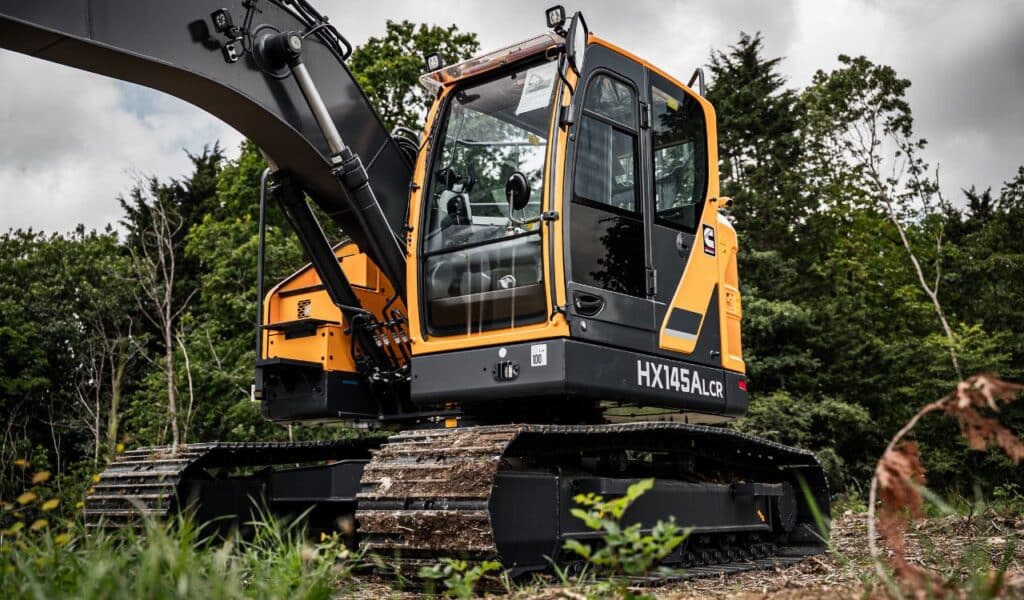
Whether you’re managing a large construction site or taking on a smaller project, having the right excavator can make all the difference. In this blog, we’ll answer the most common questions about excavators, including what an excavator is, different types of excavators, essential excavator parts, and useful excavator attachments. This guide is ideal for contractors, plant hire companies, and anyone working with construction machinery.
What is an excavator and what is it used for?
An excavator is a piece of heavy-duty plant machinery designed to dig, lift, demolish, and move materials. The machine typically features a rotating cab, an arm with a bucket, and either wheels or tracks. Thanks to its powerful hydraulic system, an excavator can perform a wide range of tasks across construction, landscaping, utilities, and infrastructure.
What are the main excavator parts?
Understanding the core excavator parts helps you maintain and operate the machine effectively. Key components include:
- Cab – The operator’s control centre; can rotate 360°
- Boom, Arm & Bucket – The articulated arm used for digging and lifting
- Tracks/Wheels – Provide stability and movement
- Engine – Powers the machine and hydraulic system
- Hydraulic System – Controls the movement of the arm and attachments
Routine inspection of these parts is essential to reduce downtime and extend machine life.
What excavator attachments are available?
One of the major advantages of excavators is their compatibility with a wide range of attachments, including:
- Digging buckets (standard, trenching, and grading)
- Hydraulic breakers (for demolition and concrete work)
- Augers (used to drill holes)
- Grapples (for lifting irregular materials like logs or debris)
- Rippers (for breaking up hard ground)
Using the right excavator attachments can significantly boost productivity and versatility on site.
What types of excavators are there?
There are several types of excavators, each designed for different site conditions:
| Type of Excavator | Best Use |
| Crawler Excavator, | Ideal for rough, uneven terrain; strong stability |
| Wheeled Excavator, | Best for urban or paved environments |
| Compact Excavator, | Perfect for smaller sites with restricted space |
| Zero-Emissions Excavator | Ideal for indoor or environmentally sensitive sites; electric-powered |
Selecting the right excavator type depends on terrain, dig depth, and required mobility.
What size excavator do I need?
Choosing the correct size depends on the job’s requirements:
- Mini excavators (under 6 tonnes) are ideal for small sites and tight spaces.
- Medium excavators (6–20 tonnes) suit most general construction tasks.
- Large excavators (20+ tonnes) are best for industrial projects and major earthworks.
Consider access limitations, lifting capacity, and the dig depth required.
What safety precautions should I follow when operating an excavator?
Operating an excavator safely is essential:
- Wear correct PPE, including helmet and high-vis clothing
- Conduct a daily walkaround inspection
- Avoid overhead power lines and underground services
- Stay within load limits
- Use seat belts and ensure operators are qualified and alert
Do I need a licence to operate an excavator in the UK?
While there’s no legal licence requirement for operating on private land, most sites will require a valid operator qualification such as:
- CPCS (Construction Plant Competence Scheme) card
- NPORS (National Plant Operators Registration Scheme) certification
Having proof of training ensures safety and compliance with site standards.
What maintenance does an excavator require?
Regular maintenance is vital for performance and longevity:
- Daily fluid checks (hydraulic oil, engine oil, coolant)
- Undercarriage inspection (track tension, rollers, sprockets)
- Bucket teeth and attachment wear
- Filter changes as per service intervals
- Visual checks for leaks or wear
Following the manufacturer’s maintenance schedule is key.
How long do excavators typically last?
With proper care, an excavator can last:
- 7,000 to 10,000 hours or more
- High-end machines may exceed this with diligent servicing
Heavy use without maintenance shortens lifespan and increases downtime.
Can I hire an excavator instead of buying one?
Yes – at Rygor Plant, we offer flexible excavator hire options to suit your project needs. Whether you’re managing a short-term job or a long-term contract, hiring is a smart choice if:
- You only need machinery for a specific project
- You want to reduce upfront costs
- You need flexibility with excavator size, capabilities, or attachments
We provide a range of Hyundai excavators and Mecalac excavators available for both self-drive and operated hire, with expert support and delivery available across the region.
Still have questions?
If you’re looking for the right excavator for your next project — whether to buy or hire — our team at Rygor Plant is happy to help. We offer expert advice and a full range of machinery to suit your needs.
Contact us today or explore our range of excavators.
